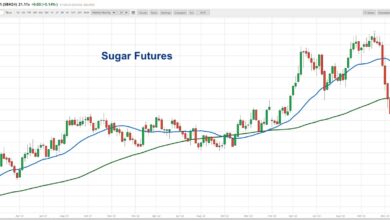Products in US supermarkets linked to deforestation of tropical forests

Support for countries to end deforestation
The FOREST Act would also support countries in ending deforestation.
Led by the US Trade Representative, the US would determine which countries are high-risk for deforestation, then subsequently develop national “Action Plans” for those countries.
The plans may include: policy or practices to prevent deforestation; ensuring sufficient capacity to support relevant laws; establishing processes to address previous illegal deforestation; effective monitoring, transparency, and data sharing for land ownership and use, deforestation, and potential impacts to other ecosystems; traceability, transparency, and data sharing for commodity supply chains.
In the bill, national Action Plans serve as the primary method for determining how and where US aid can be channelled to support deforestation-free plans. They will also include a series of benchmarks to consider the effectiveness of the program – and to determine when the deforestation-risk has been mitigated.
Strengthening the FOREST Act
While the Act in its current form could still help to drastically reduce the US’ deforestation footprint, it is comparatively weaker than other similar legislation, such as the EU’s Deforestation Regulation (EUDR) – and could and should go much further in future.
First, the Act could do so much more to centre human rights. In fact, previous versions of the Bill had a stronger focus on community outreach, specifically for Indigenous and other local communities that live in or near the forest – often the best defenders of land. If plans for forest protection don’t actively engage and centre the needs of these communities, we risk the plans becoming ineffective.
The FOREST Act also adopts a “legality standard,” meaning if the deforested land a good or product was grown on has been illegally deforested in the source country, then it would be illegal to import that product into the US.
This approach differs from other import-related regulations like the EUDR that apply to all goods from deforested land regardless of whether this land was deforested legally or illegally. To be fully robust, the FOREST Act should be extended to include products from all deforested land.
The Act also currently only covers agricultural commodities – and not other areas of growing concern, like large-scale mining for transition minerals important to the technology sector. With the current focus on securing a sustainable supply of these products, the US should consider increasing scrutiny into this growing and risky field.
What’s more, the FOREST Act doesn’t cover the financial flows enabling the deforestation-tainted products reaching US consumers. This funding is vast, as our research has shown. It’s therefore vital the funding from US banks that enables these commodities to be grown on deforested land in the first place is fully shut off.
If the US is serious about halting and reversing global forest loss by 2030, Congress must pass the bill in its current form as soon as possible. This would ensure the US can at least slow the tide of certain deforestation-tainted products in the near-term – with a view to filling in the gaps further down the line.
Every day the FOREST Act is delayed results in more destruction of climate-critical tropical forests that the world cannot afford to lose.





